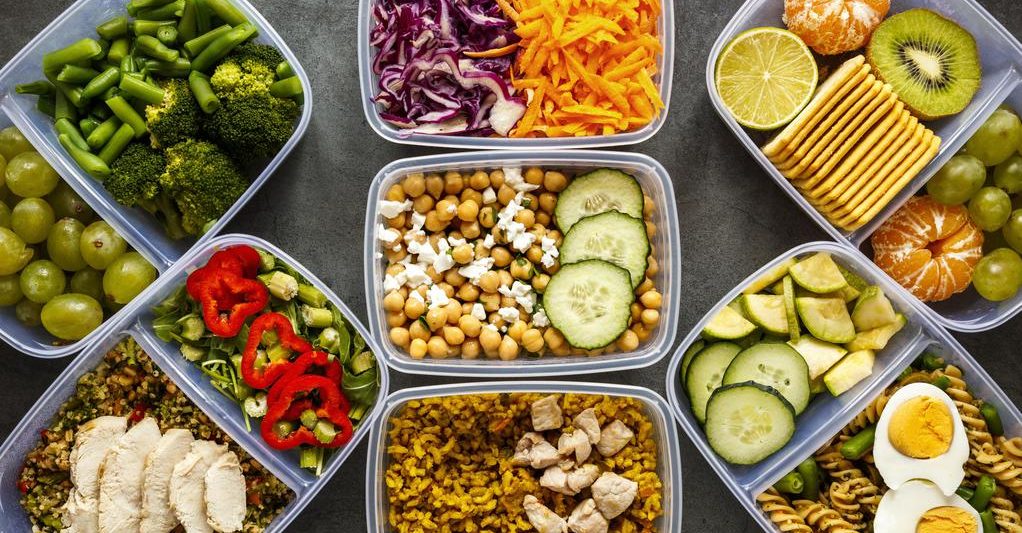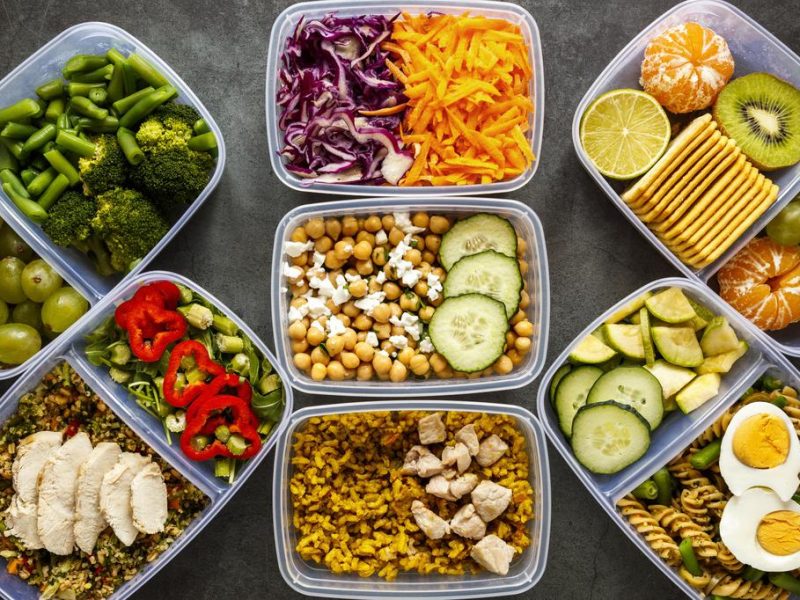Whether it be for the entire workweek, on a day-by-day basis, or just when you feel it necessary, meal prep can help you regulate what you eat and help you stay on track with your personal eating goals. This is typically done by using predetermined portion sizes, making sure you don’t overeat. Meal prep also allows you to create foods you will actually enjoy, while reaping all the benefits of nutritious food, bringing an element of fun to the process.
The hardest part of meal prepping, however, is not knowing how to start. Most of the time, it seems like a tedious process, which might just make you give up before you even try. But once you discover easy recipes and develop the right routines, meal prep will have a long-lasting effect on your health.
1. Make your breakfast the night before.
- Preparing your breakfast the night before is an efficient way to have your breakfast the next morning. It saves time and is especially great if you live a lifestyle that’s constantly moving around. Prepping your breakfast beforehand also allows you to make something healthy, instead of grabbing a quick, pre-packaged breakfast good like a donut or sugary bar. According to the Mayo Clinic, those who eat healthier breakfasts are more likely to eat more vitamins and minerals, control their weight and their blood sugar levels, and even perform better at work.
2. Prep once, cook twice.
- For example, if you’re having a veggie frittata for dinner, prep twice as many veggies so that you can incorporate them into something that you’ll make the next day. Another example could be preparing veggie burgers one night for dinner, but making two instead of one so they could be eaten the next day for lunch or another dinner. If you don’t want to eat another burger, you can add the already cooked patty to a salad or to a veggie stir-fry as a source of protein. Planning meals based on a plant-centric diet—a lifestyle that places plants as the focal point in a meal—is great because you will typically always have washed and chopped veggies at the ready in the refrigerator.
3. Don’t listen to social media.
- Removing the stigma from what a meal “should” look like means not everything has to be picture perfect. Lunch can be scrambled eggs and toast or a sampler plate of different crackers, cheese, and fruit, and dinner can be a sandwich.
4. Boil some eggs.
- Hard-boiled eggs contain one of the richest sources of choline. Choline is a nutrient that your brain and nervous system need in order to regulate memory, mood, muscle control, and other functions. Adding them to your diet is a great low calorie, protein-packed way to get nutrients in. Boiled eggs can last in the fridge for up to 7 days, so it’s a great prep idea to last you the week. You can eat them plain or mix them into a dish of your choosing.
5. Prepare your pantry.
- When it comes to simplifying food and nutrition, learning a handful of fast meals that you can remember in the back of your head is key to healthy meal prep and a healthier diet overall. One way to do so is to always have nonperishable goods handy just in case you need to prepare something last-minute or need a backup meal. Think of a few pantry staples to always keep stocked so that you can realistically make meals in a pinch when you’re running low on fresh groceries. For example, keep a few cans of beans, a can of crushed tomatoes, and some dried spices to create a base for any chili.
6. Be versatile with your groceries.
- It’s a helpful habit to purchase groceries that you know you’ll use for more than one dish. It saves you money, and no food will go to waste. Another suggestion is to think of portable grab-and-go foods such as bananas, individual nut packs, guacamole and hummus packs, cheeses, and yogurts. Also, keep a loaf of grainy bread and a box of nutritious crackers on hand to create sandwiches and sampler plates as well as a jar of nut or seed butter to use as a protein addition.
Happy meal prepping!
Written by GUADS intern Sara with contributions from https://www.eatthis.com/



 10 Minute Booty Blast
10 Minute Booty Blast